
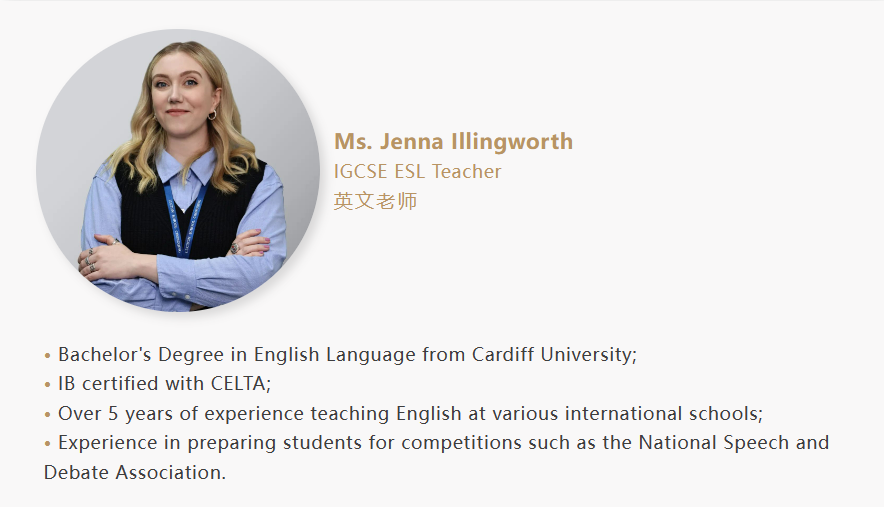
English as a Second Language is a well-known and widely-taught lesson. Year 11 students have been preparing to take the IGCSE ESL exams since September.
Students in Ms. Illingworth's classes have been working hard since the beginning of the school year. As languages are more of a skills-based lesson, students have been heavily focussing on methods and techniques to help them during the exam as well as hands-on and practical learning.
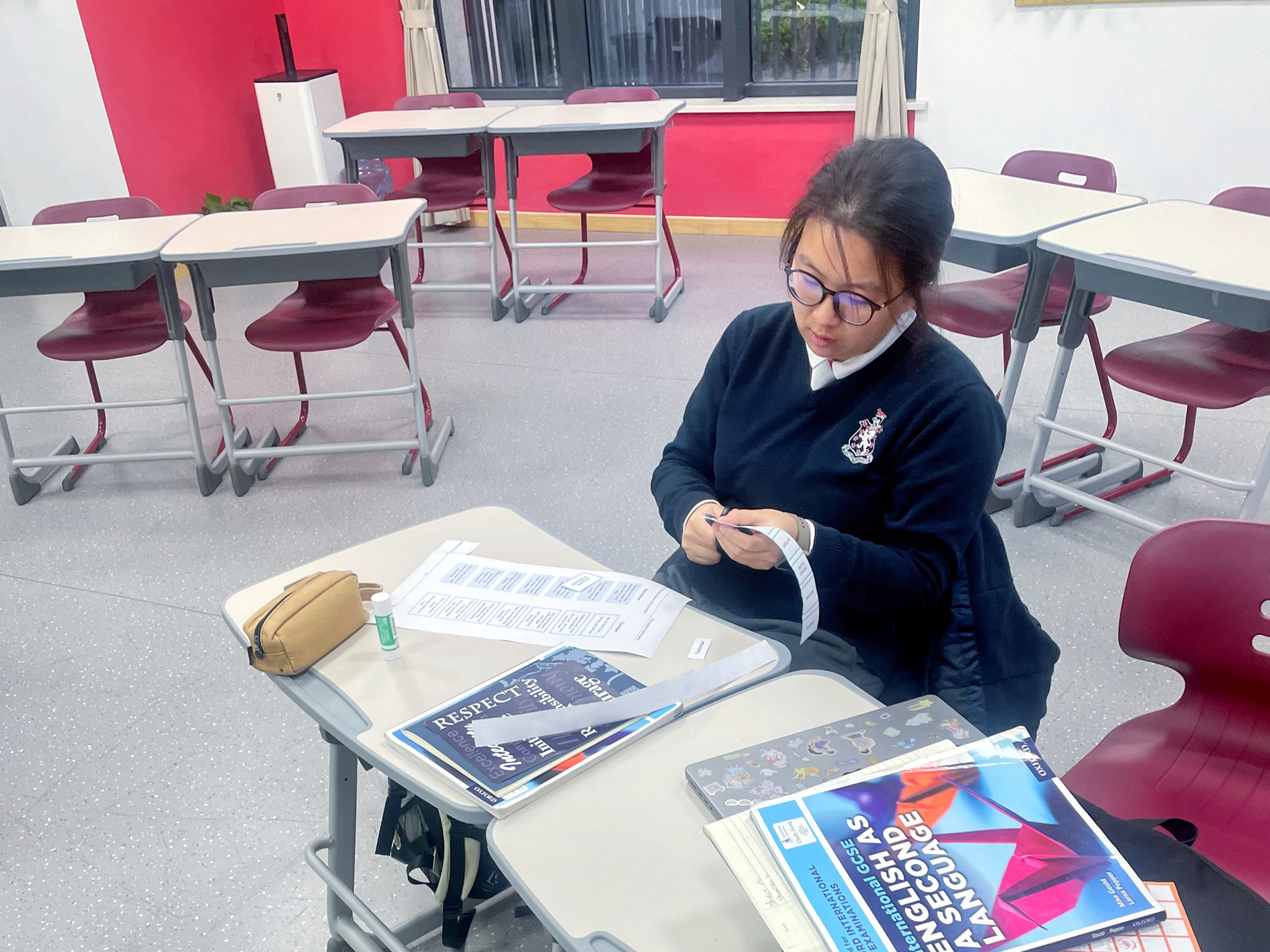
The IGCSE ESL exam is split into 4 parts; Reading and Writing, which are both an hour and a quarter and Listening which is 45 minutes. Finally, the speaking element is carried out by an external examiner and consists of 10 minutes preparation time followed by 10 minutes speaking which is based on an unseen photo-card given to the student at the beginning of the preparation time. Therefore, a wide variety of skills need to be displayed in order for the student to acquire a high level.
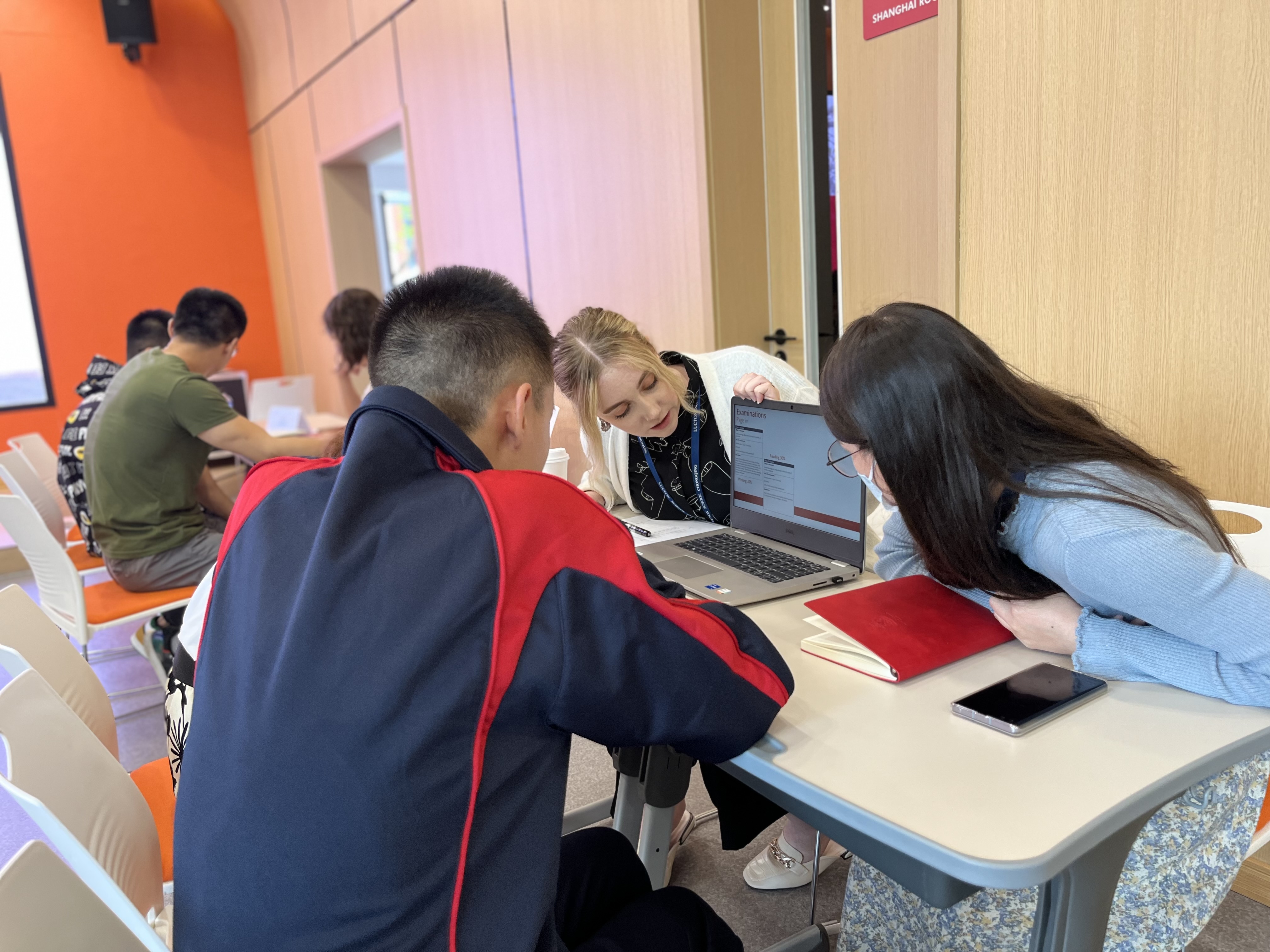
Students in the Year 11 ESL class made leaflets about tips for maintaining a healthy lifestyle.
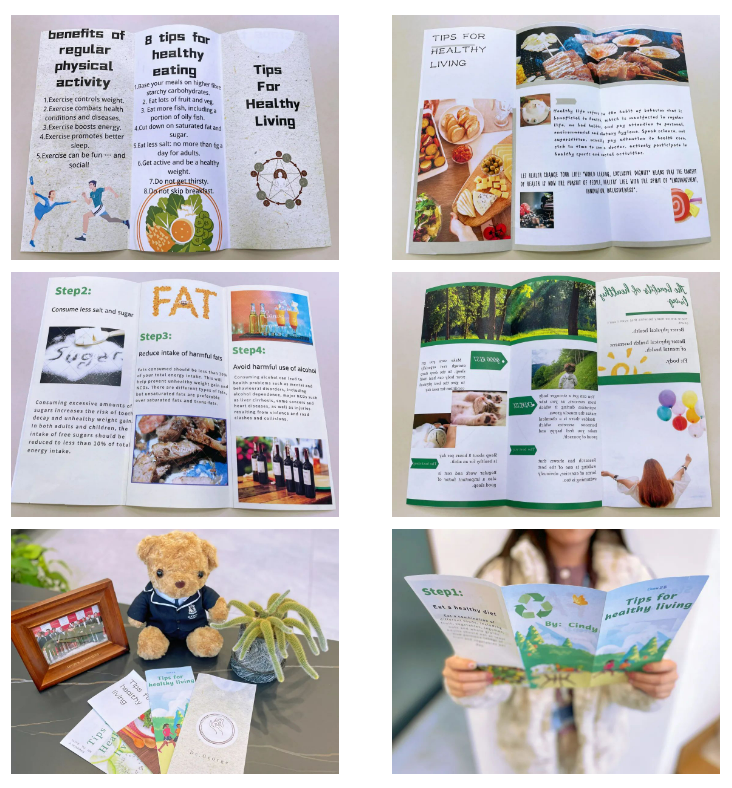
Reading and listening are receptive skills, meaning the content is provided to the students in the form of an article or an audio, from which the student needs to draw meaning and understanding in order to answer the question. Whereas, writing and speaking are productive skills, meaning the language must be thought up and produced by the student in order to answer the question, which is why many students find writing and speaking exams to be more challenging than their receptive counterparts.
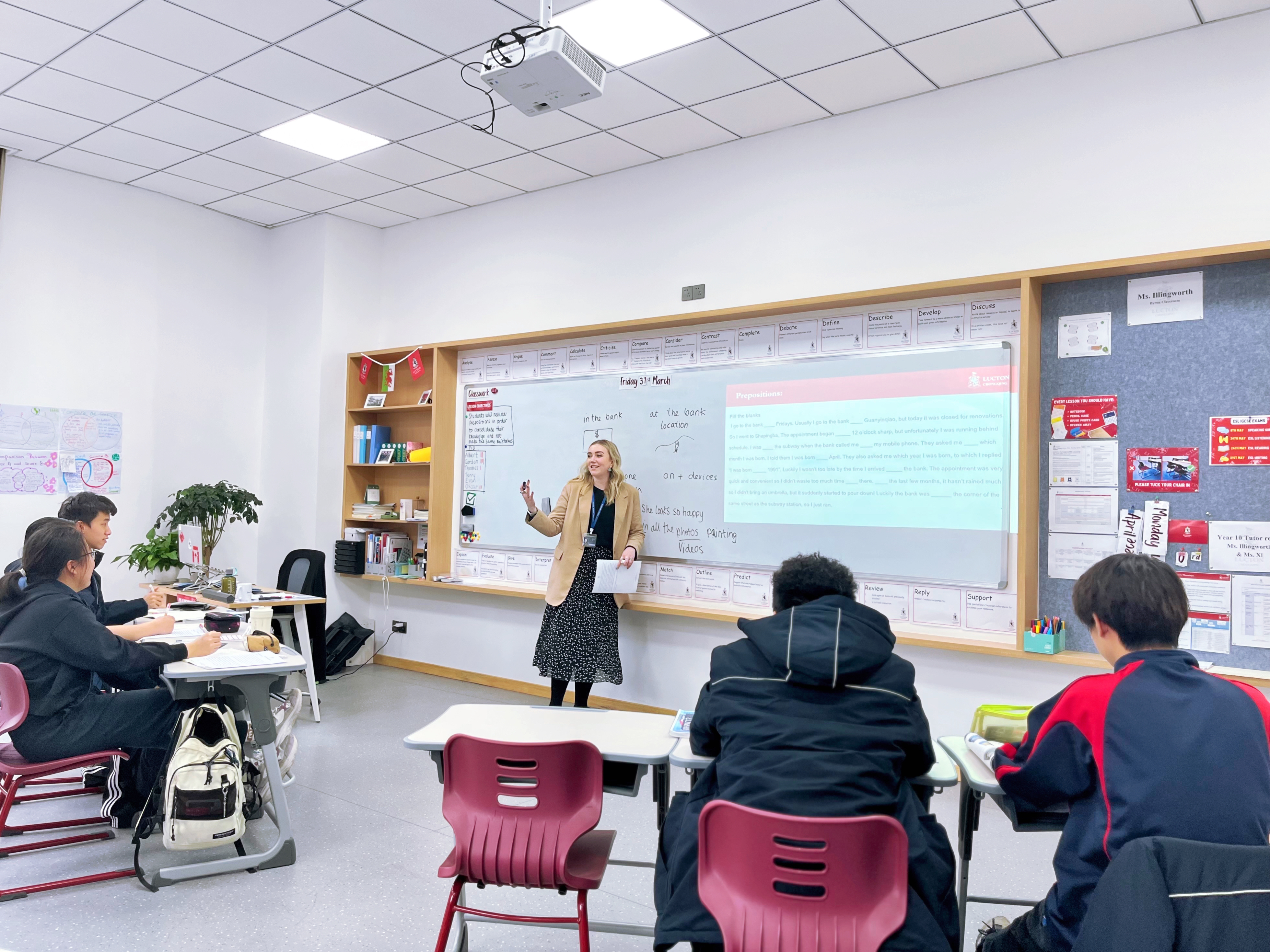
During Ms. Illingworth's classes, she tries to break the language down as much as possible, teaching students useful language techniques such as splitting the word into its units of meaning. For example, learning the prefix, root word and the suffix all have their own meaning. Once a student can do this, they will be able to try and deduce the meaning of a word even if they've never seen it before. Ms. Illingworth truly believes if you can understand the way in which a language works, how it is built or the rules it follows, it will be the key to learning the language well.
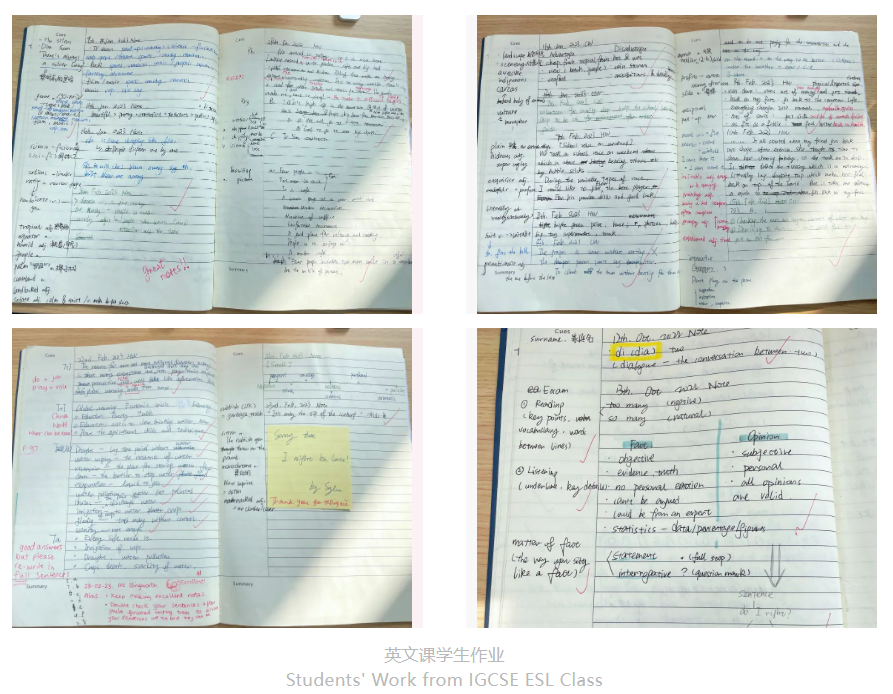
In recent months, students in Year 11 have been busy preparing for the IGCSE examinations. Both Ms. Illingworth and Mr. Lubojanski have worked together to compile and create a revision booklet which is easy to follow and very clear for the students. Students in Ms. Illingworth's class have not only been using the revision booklet to practice real-life exam papers but to address concerns and different question types which have been causing mass problems; addressing them as a class. Students have been able to share their ideas and share best practice as well as help each other to improve.
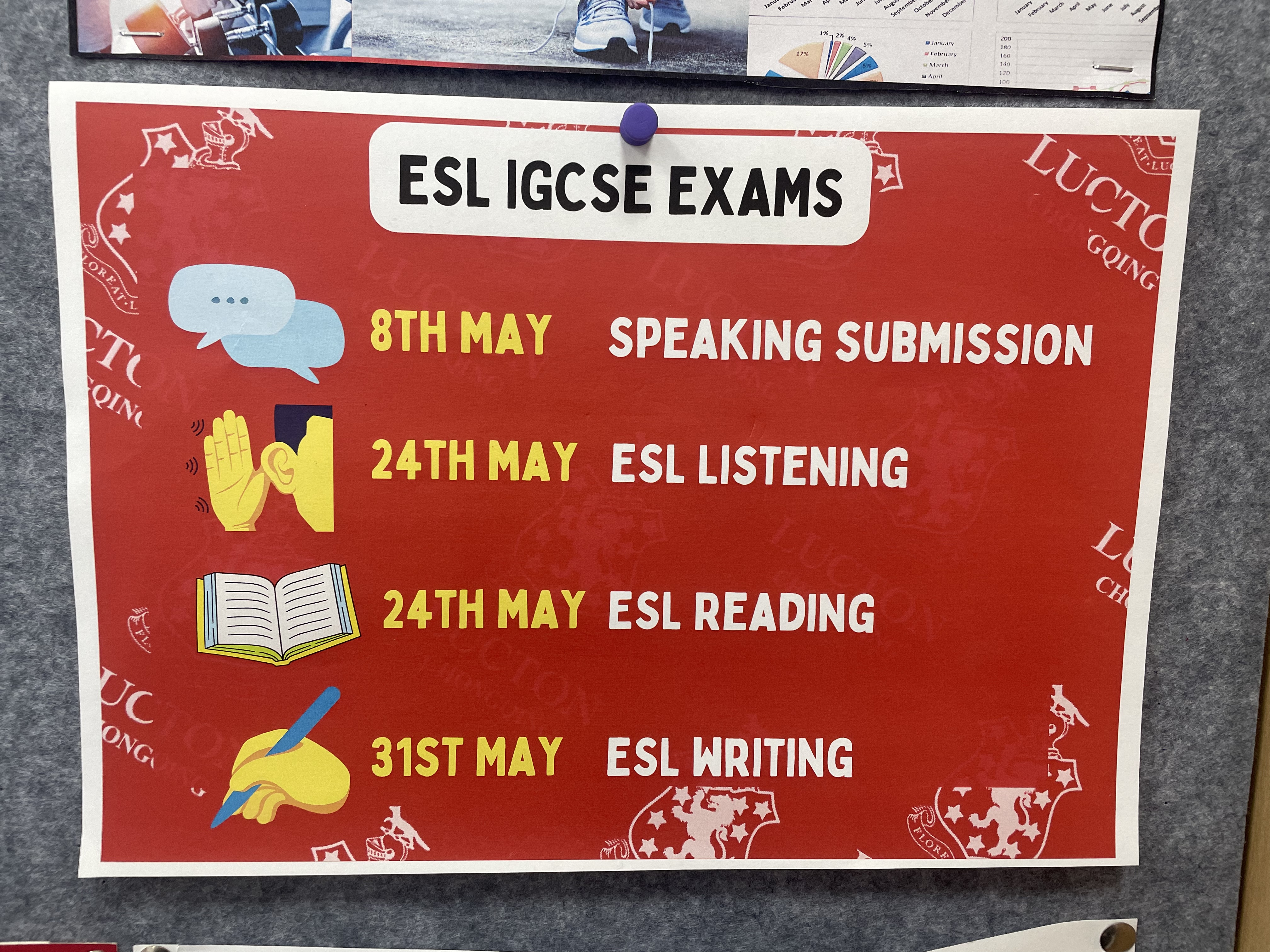
The IGCSE ESL exams are now complete and the Year 11 students can breathe a deep sigh of relief, having known they have prepared fully and tried their best during the past ten months.

